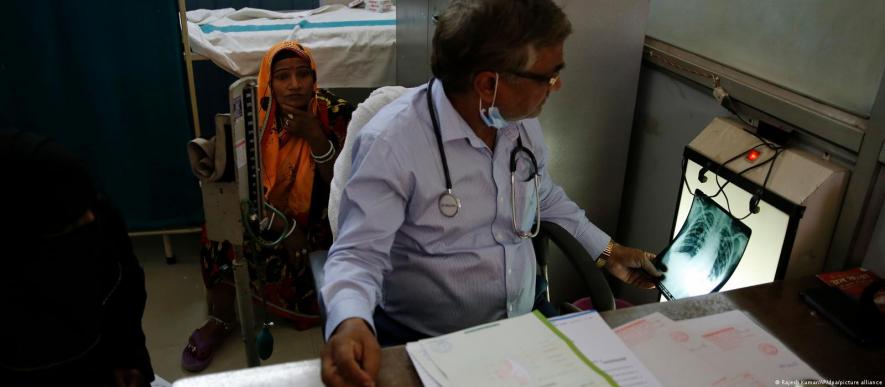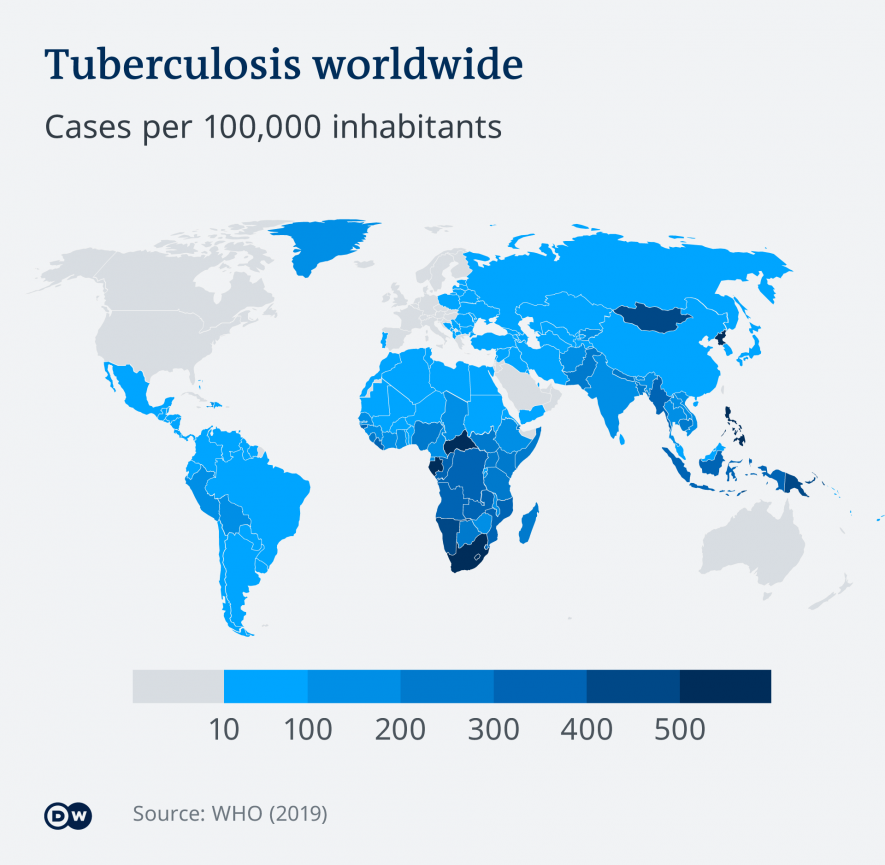COVID Reverses Gains in Fight Against Tuberculosis

Around half a million people died of tuberculosis in India in 2021 — an increase of over 5% compared to 2020 for the country that shoulders the highest share of the global TB burden.
India's TB death toll makes up for just under a third of global TB deaths, according to the data gathered by the World Health Organization (WHO). With the exception of COVID-19, TB is the world's deadliest infectious disease and has only grown more lethal during the pandemic.
The more powerful disease upended TB control efforts in India, and impacted resource allocation for TB diagnosis, treatment, and prevention. As a result, many people suffering from TB were not diagnosed and treated.
"The pandemic and associated lockdowns certainly disrupted the management of a host of non-COVID-19 medical conditions, including TB. What is of concern is that no serious efforts are being made to acknowledge, quantify and deal with the situation," Vandana Prasad, a community pediatrician and public health professional, told DW.
TB believed to be right behind COVID as global cause of death
Tuberculosis is caused by bacteria that attack the lungs. The disease is mainly spread through the air and it mainly affects adults, particularly those who are malnourished or immunocompromised, in developing countries.
It was ranked the 13th leading cause of death globally in 2019. Due to huge setbacks, it is now estimated to be the second leading cause, only after COVID-19.
Prasad pointed out that even after the pandemic threat had eased, India's health system had not gotten back into full gear on TB immunization.
"A variety of health services slowed down during the pandemic and they did not really get back full steam even after COVID, because they were recouping," she said.
This viewpoint is echoed by K Srinath Reddy, founder and professor at the Public Health Foundation of India, who notes that India's health resources were focused on containing the transmission of the coronavirus, treating COVID patients and also on a massive vaccination program.
"This resulted in reduced rates of case detection and rise in interrupted treatments for tuberculosis. The health system has to intensify efforts to make up for the ground lost due to COVID-19," Reddy told DW.
A recent report by Mumbai-based health-tech start-up Haystack Analytics has indicated that India continues to bear the largest share of TB cases in the world. The data also shows that 65% of the cases are reported in patients between the ages 15-45, who make up the most economically productive segment of the population.
More deaths, less reported cases
Despite TB claiming more lives during the COVID pandemic, the number of reported cases had gone down.
In 2020, Indian authorities registered 41% less TB cases than in the previous year, In 2021, the decline was 29%. In other words, a large number of TB cases simply went unreported in the country.
Public health physician Vikas Bajpai told DW that TB deaths were on the rise even before the pandemic.
"The outbreak of the pandemic it seems became a legitimate ruse for shutting down care for all manner of diseases other than COVID," he said.

Uphill battle to end TB by 2025
Bajpai claims that the bigger problem was that there has been little effort to even assess the damage done with regard to a number of other public health problems. In his view, there have been disruptions to TB diagnostic and treatment services both on the demand and the supply side.
"The underlying assumption being that 'absence of evidence' can be translated into 'evidence of absence,'" said Bajpai.
In 2018, Prime Minister Narendra Modi had envisioned ending TB in India by 2025. Meeting this deadline would mean defeating the disease five years ahead of the global Sustainable Development Goals (SDG) target of 2030.
India's Health Ministry has also been relying on the WHO for technical assistance in planning, capacity building, supervision, monitoring and promoting research for the National Tuberculosis Elimination Programme. The national TB budget has seen a 6.9% increase, from $544 million (€511 million) in 2020 to $582 million last year.
Even so, the current data indicates that meeting Modi's 2025 deadline would be an uphill battle.
"Much more needs to be done. Foremost, states need to increase services such as house-to-house visits and mass screenings. There has to be political will," said Bajpai.
Edited by: Darko Janjevic
Get the latest reports & analysis with people's perspective on Protests, movements & deep analytical videos, discussions of the current affairs in your Telegram app. Subscribe to NewsClick's Telegram channel & get Real-Time updates on stories, as they get published on our website.
























